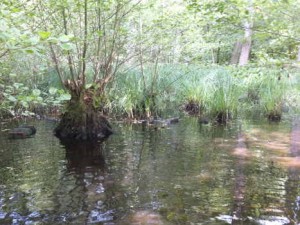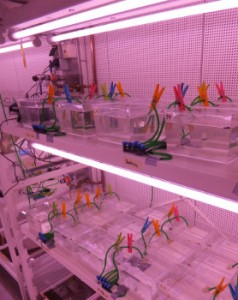In this post, the research group „Community Ecology & Ecotoxicology” offers the possibility to conduct either research project or Master theses with them.
The research of the group “Community Ecology & Ecotoxicology” which is headed by Dr. Carsten Brühl is concerned with multiple stressors in landscapes and focuses also on the effects of pesticides on biodiversity and communities. Pesticides as well as biocides are considered to have effects that are responsible drivers for changes in terrestrial and aquatic food webs. One of our main research topics is the influence of mosquito control using a naturally occurring bacterium (Bti – Bacillus thuringiensis israelensis) on the community structure of seasonal wetlands (Project: Moscofee)
Research Project Course (RPC) Topic:
Literature review and meta analysis on the use and the effects of Bti on chironomids/amphibians
Start: flexible, latest: beginning of December
Products containing Bti are used all over the world in various formulations. One task is to identify the use and properties of the different products and review studies on the effectiveness and their impact on amphibian communities. Chironomids depict a group of non-biting midges that are also likely to be affected through certain doses of Bti. There are various studies touching the impact of Bti on different stages of chironomids in lab, semi-field or field approaches which give widely varied and even contradictory estimations and opinions. Your task would be to collect and review all kinds of studies dealing with effects of Bti on chironomids in a meta analysis approach.
Master thesis:
Field study evaluating the effect of Bti on non-target organisms
Start: February/March 2015
The field study is implemented in control wetlands along the River Rhine that were not treated with Bti for at least 10 years. With the use of enclosures that are inserted in the wetlands we will examine the effect of different realistic concentrations of Bti formulations on the emergence of aquatic insects and the community structure of other non-target water organisms.
Laboratory mesocosm study on predatory effects on amphibians under Bti exposure
Start: March 2015
Amphibians are in worldwide decline which, among other things, can be caused by multiple stressors and complex causal mechanisms. In general, connections between consumers and resources in food webs are adaptable and can be modulated by the interaction with predators or the influence of other stressors like pesticides. In a laboratory mesocosm approach we want to examine how Bti affects behaviour and predation dynamics between an odonate predator and larval amphibians in a natural system.
The technical supervisors for all projects will be Stefanie Allgeier and Anna Kästel, who will also provide you background information, literature and guidance during all tasks.
If you are interested in joining the project team don’t hesitate to contact us (allgeier@uni-landau.de; kaestel@uni-landau.de).


